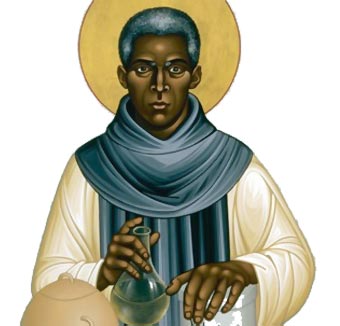 In October 2005, I visited Lima, Perú for the first time where my goal was to immerse myself in the Spanish language as I had done in Cuba and Mexico several years prior. At the same time, I wanted to explore the black community and its experience.
In October 2005, I visited Lima, Perú for the first time where my goal was to immerse myself in the Spanish language as I had done in Cuba and Mexico several years prior. At the same time, I wanted to explore the black community and its experience.In Lima, I met only a handful of blacks, but during my weekend trips to the Southern Perúvian district of El Carmen, I was introduced to the black life of Perú, along with that of indigenous ancestries, such as the Inca and Amayra people.
I stayed with a prominent musical family known as the Ballumbrosio family where the father, the late, great Amador Ballumbrosio, played a major role in reviving and promoting Afro-Perúvian music and dance which, today, are national treasures.
I was greeted warmly and taken in by the Ballumbrosio family who made me feel like an extended family member. I was also developing friendships with their neighbors and other members of the community. Every Friday and Saturday night I was invited to a party or a social event that provided greater opportunity for cultural exchange. I didn’t have to go anywhere for entertainment. It was all right there in the community. People were as curious about me as I was about them. The Province of Chincha is located on the southern pacific coast of Perú where every February they celebrate Black Heritage with a festival called Verano Negro (Black Summer).

St. Martin de Porres, an Afro-Perúvian priest noted for his tireless work on behalf of the poor. A district in Lima is named in his honor.
Sources can’t seem to agree on the black population of Perú. Some sources say 3-5%, other sources say 9-10%. However, there is one thing on which most sources do agree… that the first blacks to arrive in Peru in 1521 were members of Spanish military forces, known in our history book as the conquistadors. There were black conquistadores sprinkled all over the western hemisphere during that period of time. In fact, Fernando Cortez sent a black conquistador into what is now Arizona and New Mexico.

Ronaldo Campos, founder of the world's famous dance troupe Perú Negro (Black Peru)
Slavery in Perú didn’t occur until much later in history and that ended in 1856. To this day, just as African Americans celebrate Juneteenth (or June 19th) in commemoration of Abraham Lincoln’ emancipation proclamation, Afro-Peruvian communities celebrate their emancipation proclamation with the popular refrain: Que viva mi papá, que viva mi mamá, que viva Ramón Castilla que nos dio la liberta' Hooray for my Dad, Hooray for my Mom, Hooray for President Castilla who gave us freedom.
Peruvian "Soul Food" at Mamaine Restaurant in El Carmen, Perú
However, it was in the late 1950s to 1970s, a cultural revival brought back old, forgotten African music that inadvertently merged with Spanish and indigenous music during slavery resulting in a whole new genre of music known as Afro Peruvian music. In 1969, a man by the name of Ronaldo Campos dedicated to preserving Afro Peruvian music founded the music and dance troupe Perú Negro (Black Perú). That same year, they won first prize at the International Festival of Dance and Song in Buenos Aires, Argentina. Today, Perú Negro is marketed and billed as the cultural ambassadors of black Perú traveling and performing worldwide. It was they, along with other artists that I’ve seen and heard that inspired me to visit Perú.
Related Posts on Black Perú

We have a lot to work on racism, i remember that when i was in school, i being half black, was the objective of a lot of racial jokes, but at that time, i didnt think they were any diferent than other jokes, even the teachers didnt , when i grow up i realized that all that was racism .
ReplyDeleteHi Bill,
ReplyDeleteI've just discovered your page and the blogs that have been written.
I am an Afro-Latina, being that my Dad is Puertan Rican and my Mom is Mexican. I am of medium skin color with big brown eyes and hair that is thick and coarse, relaxed and cut chicly short. I have both an African-American first name and two Latina middle names.
I often am confronted with racism most places I go where the people are Spanish speaking Latinos. Some people refuse to speak to me in Spanish, some say "oh your accent is so cute. Where are you from"? And it never fails to surprise people when I open my mouth and speak Spanish or when I am with my grandbabies and speak to them in Spanish. When that happens, I also think "aren't you aware that there are Latinos that look just like me throughout the world?!
I have to admit, though, as knowledgeable as I am about my culture (Puerta Rican, Mexican and African-American), I was surprised to see Afro-Peruvians posted!
I imagine you really liked the band, and they must be good if they won the Song Festival in Argentina since when I did my Buenos Aires travel I realized they know a lot about music and it is a vey passionate country when it comes to ethnic music.
ReplyDeleteNow I feel like listening to songs from this band your are talking about, I will!
Brooke